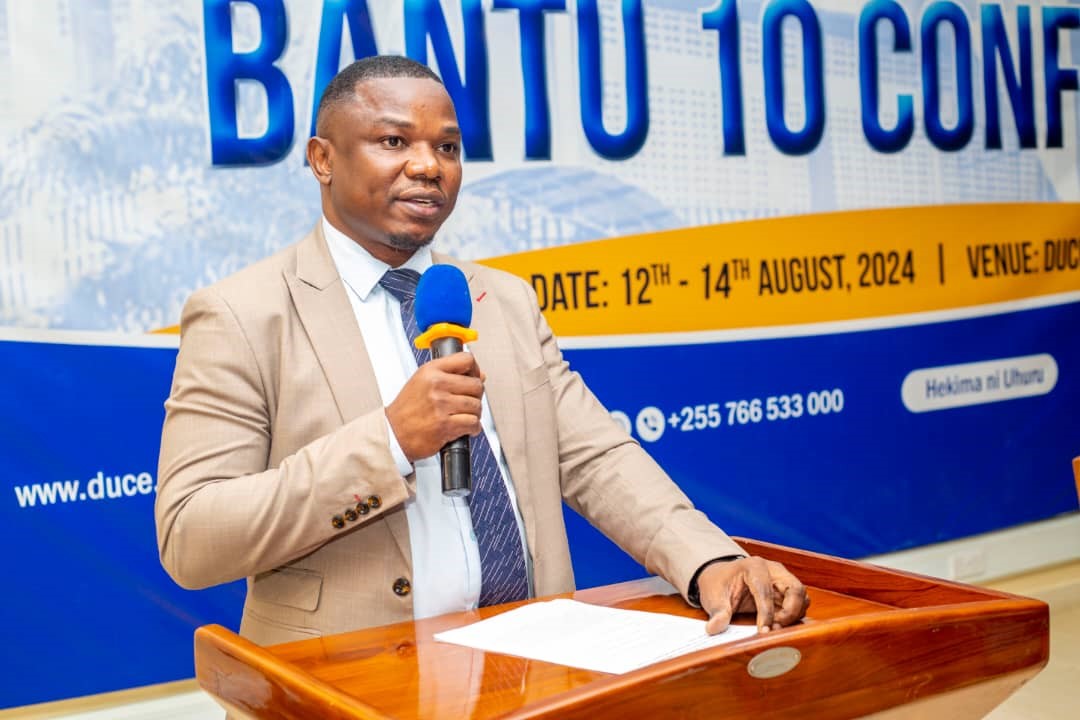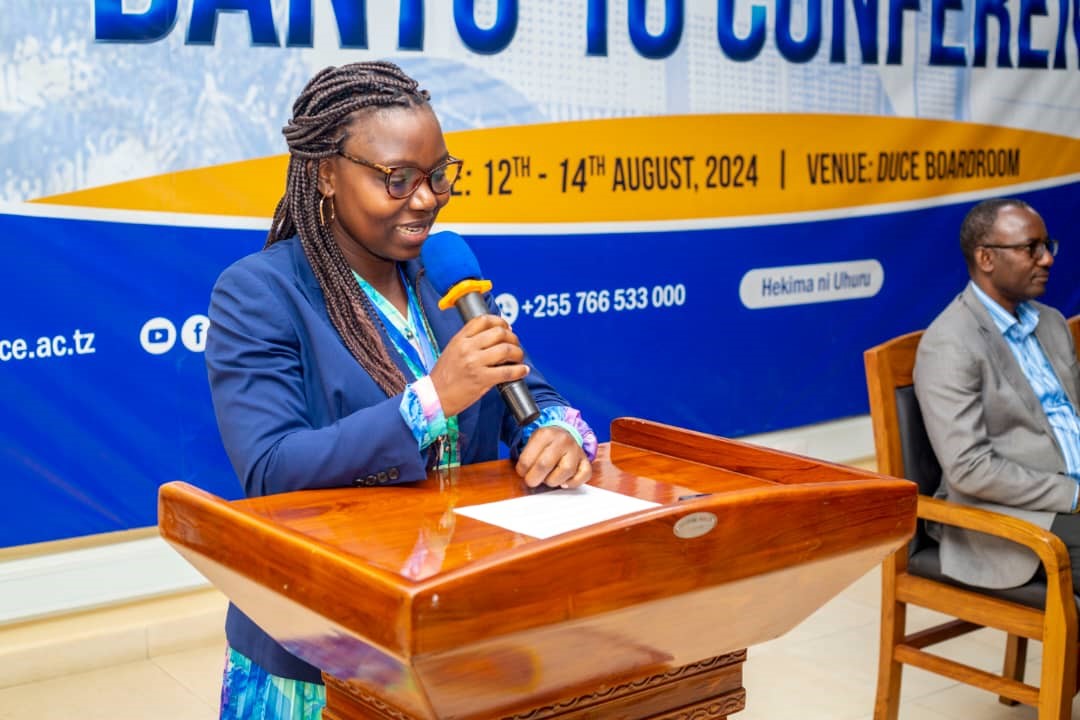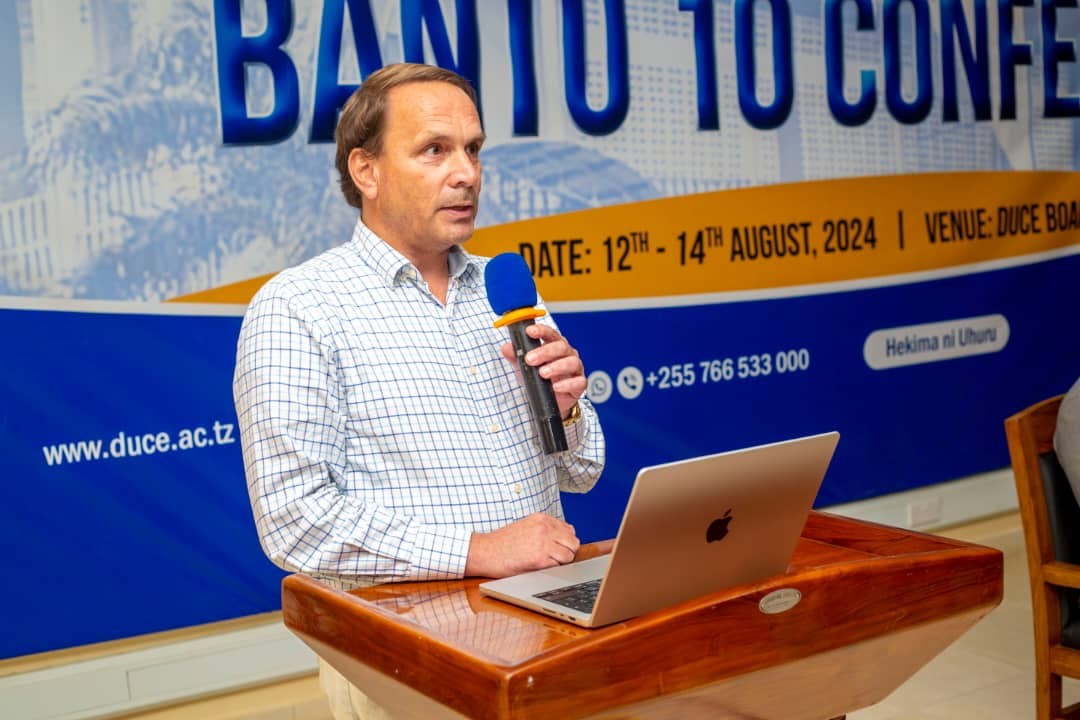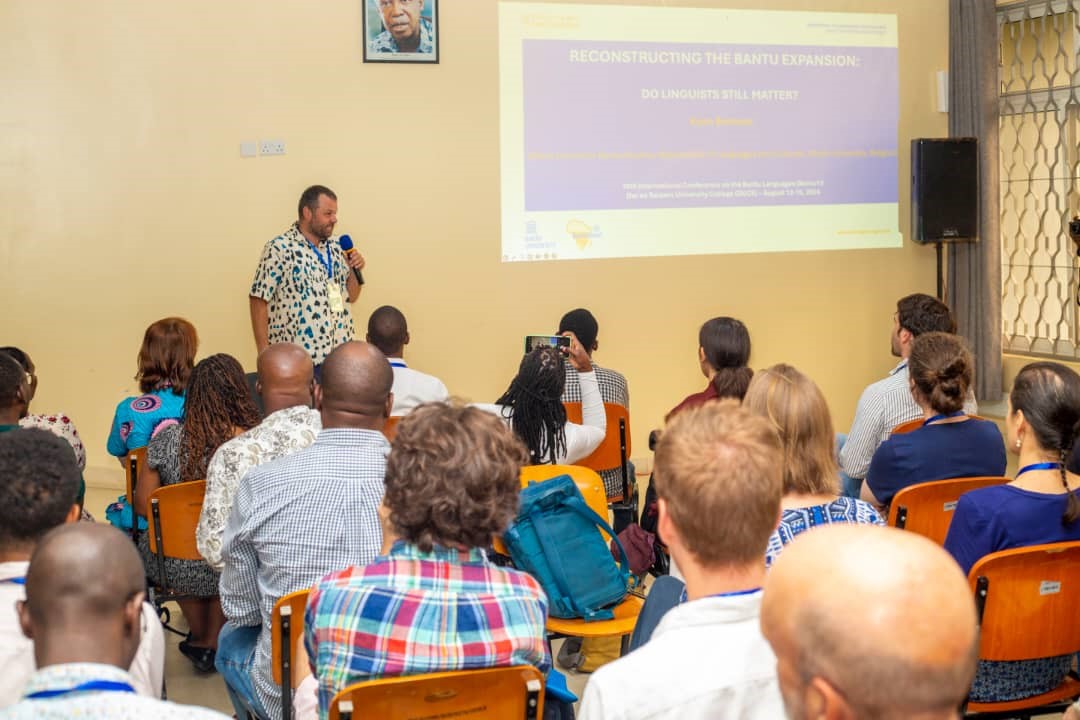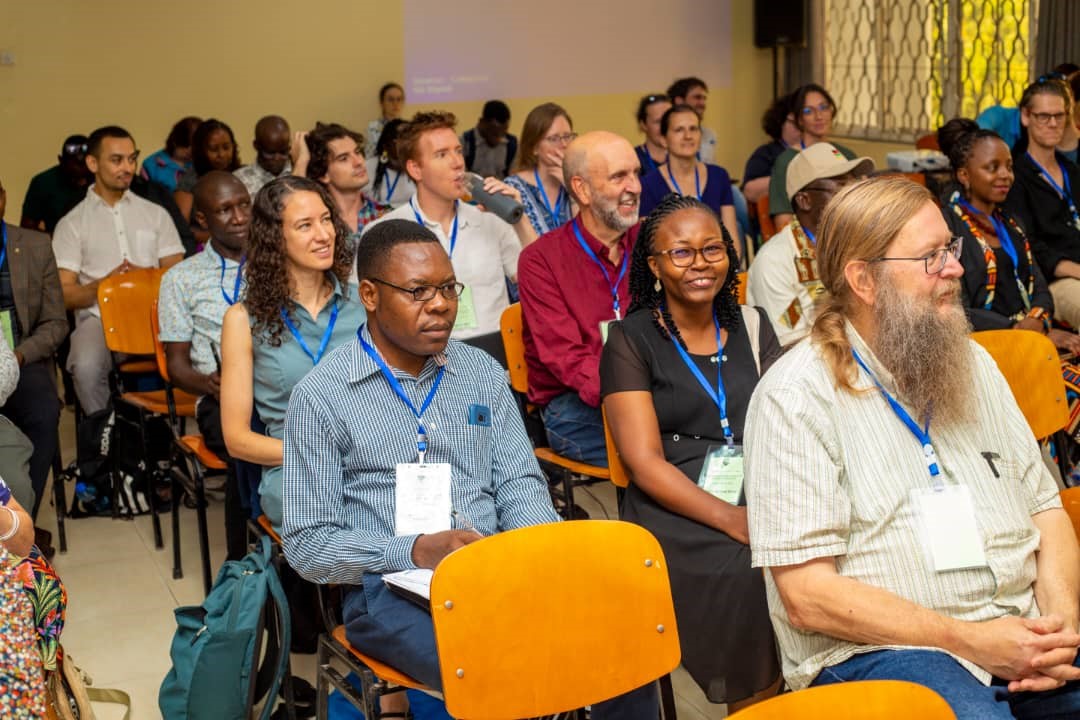News
DUCE has recently hosted the Bantu 10 Conference held at its premises. The conference aimed at sharing findings, theories, field experience and challenges related to researches done on Bantu languages. The meeting enhanced coperation by bringing together researchers from different universities around the world. These experts in Bantu languages came from 23 countries worldwide, including those from Europe, Asia, South America, North America and Africa.
Speaking at the opening of the conference, the Deputy Principal (Planning, Finance, and Administration), Prof. Method Samwel urged the participants to take advantage of such a valuable opportunity to establish collaborations with DUCE for advancing research activities. He emphasized that the College has sufficient experts specializing in various disciplines.
The conference covered linguistics topics such as Phonology, Phonetics, Morphosyntax, and Language Contact. Keynote speeches were delivered by prominent linguists, such as Prof. Koen Bostoen from Ghent University in Belgium, Prof. Lee Bickmore from the University at Albany in the United States, and Prof. Nobuko Yoneda from Osaka University in Japan.
Speaking during the welcoming note, the Chairperson of the Local Organizing Committee, and Head of Department of Languages and Literature, Dr. Loveluck Muro emphasized the efforts of Bantu language researchers to keep these languages active and alive. She noted that some Bantu languages are endangered due to limited use and are at risk of extinction. She therefore urged that research and documentation are crucial for supporting these minority languages and helping them recover from the brink of disappearance.
Correspondingly, the Director of Research and Innovation, Prof. Amani Lusekelo stated that such academic gatherings offer researchers the opportunity to receive feedback from colleagues during discussions held in parallel sessions.
On his part, the Chairperson of the International Steering Committee for International Bantu Conferences, Prof. Lutz Marten from SOAS Universty London highlighted that Tanzanians should take pride in their cultural richness and linguistic heritage, including Kiswahili, which is one of the most widely spoken languages in Africa.
Linguists believe that all languages are equally important because they serve the purpose of communication and contribute to linguistic diversity. These platforms help to embrace Tanzanian ethnic languages, which enrich the national language, Kiswahili, as it incorporates many vocabularies originating from these ethnic languages.
Other News
Fri, 17.Jan.2025 : UDSM Vice Chancellor urges contractors to increase workforce and adhere to contract schedulesWed, 18.Dec.2024 : Dr. Jakaya Kikwete confers degrees to DUCE graduates and urges continued excellence in research and publication
Thu, 12.Dec.2024 : Dr. Biteko participates in UDSM Marathon, pledges support for construction of Student Centre
Thu, 12.Dec.2024 : The Assistant Coordinator of the HEET Project visits DUCE to evaluate the progress of construction and rehabilitation activities
Thu, 12.Dec.2024 : Social and Gender Specialists evaluate the progress of the HEET construction site


, Prof. Method Samwel (Right) leads delegates on the official courtesy call.jpg)
